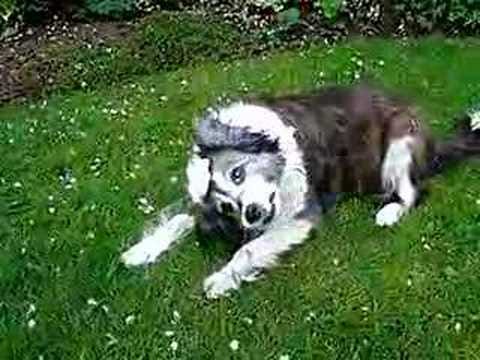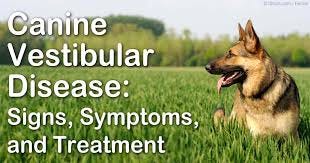
Vestibular disease refers to a sudden, non-progressive disturbance of balance. Basically the vestibular system is responsible for maintaining normal balance of body.
Idiopathic disease is a disease with unknown cause. The term idiopathic literally means ‘of no known cause’. There are many diseases which are idiopathic in nature in both animals and humans.
This disease is more common in older dogs, and also referred as old dog Vestibular syndrome.
Types of Vestibular disease
There are two types of vestibular disease in canines:
- Central vestibular disease
- Peripheral vestibular disease
Central vestibular disease arise from brain lesion like cancer or any other infection while peripheral vestibular disease occurs when no response to nerves associate with eye and brain. Common causes of peripheral vestibular disease are tissue growth, drug reaction and any bacterial infection.
This idiopathic disease occurs fast and symptoms are temporary and harmless. Dogs of all ages, breed and gender are susceptible to this disease. Symptoms of this disease mostly resolve by their own.

Clinical Signs
Initial symptoms
- Facial drooping
- Head tilt
- Disorientation
- Sudden hearing loss
Intermediate symptoms
- Falling over one side
- Rolling and circling
- Sudden vision loss
- Trouble in eating and drinking
Advance symptoms
- Motion sickness
- Weight loss
- Diarrhea
- Seizures
Diagnosis of Idiopathic disease
The diagnosis of this disease requires a detailed history which includes symptoms and physical examination. By the help of symptoms we can differentiate between central and peripheral idiopathic disease. As no exact cause of disease is present so we have to perform basic screening of animal we can perform MRI and CT scan of dog.
What causes vestibular disease?
This disease can come about in variety of ways as term idiopathic means that there is no known cause for why it occurs. However, sometimes this condition can be triggered by an ear infection, drugs that are toxic to ear, trauma or injury and tumors.
These cases are distinguished by the sudden onset of clinical signs and rapid improvement with little if any medical intervention.
Treatment of vestibular disease?
In severe cases supportive therapy such as intravenous fluids and if dog is seriously disoriented give sedatives to relax dog. Drugs that help combat nausea and motion sickness may be beneficial.
Antibiotics may be used in cases suspected of having middle or inner ear infection. Although corticosteroids can be used.
There are some natural treatments for this disease.
- Acupuncture: Try to have 1st session of acupuncture as soon as possible. Some dogs show improvement within few hours.
- Physical therapy:
Go to a veterinary physical therapist and design a special exercise for your dog according to symptoms.
- Floor mats:
Invest in some floor mats with good grip and place it around your dog’s bed.
- Gentle exercise:
Inactivity in older dogs make joints stiffer and delay recovery process so apply suitable ways to walk your dog.
- Food and water:
As the dog is feeling nauseous so its difficult for them to eat or drink. One way of giving nutrition to your pet is by chicken broth with some boiled chicken as it is gentle on stomach and make a good start up of feeding for your dog. Make water availability all time and offer it regularly.
- Time heals:
It’s the most important natural treatment most dogs recover in days or weeks
When immediate medical intervention is required?
The situation when we require immediate medical interventions are difficult breathing of animal, unable to walk, sudden collapse, uncontrollable vomiting and whining in pain. When you feel these severe symptoms in your dogs give immediate medical treatment to avoid further severe loss.
- Prognosis of disease
- The clinical signs associated with vestibular disease are more severe during first 24 hours. Many pets begin to improve within 72 hours. Head tilt and stumbling often improves over a seven to ten days period.
- If the patient fails to improve, then a more severe or worse underlying disorder should be suspected and advanced diagnostic testing should be pursued. Prognosis depends on underlying causes. Central disease due to any tumor carries a poor prognosis. Some neurological changes can persist with or without treatment like head tilt.
- Management tips
Along with treatment of dog some management tips are more important for life saving of your pet. These management tips are:
- Easy access to food and water.
- Warm soft sleepy area.
- Motion sickness medication.
- Do not take in car unless necessary.
- Limit stress.
- Limit fast visual stimulation.
- Keep up with preventive care.
- Be consistent with medication.
- Limit bright lights.
- Record eating, drinking, energy and weight.
- Use canned food. Provide safe confinement
For more guidance and consultancy feel free to reach out to me. I'd be happy to assist you.
Dr. Javaria Waheed
D.V.M (RVMP) Ph.D. (Animal Nutrition)
javaria106@gmail.com






0 Comments